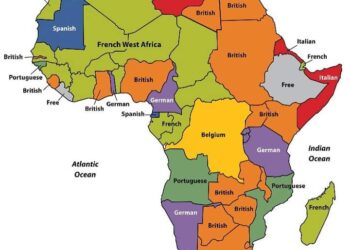ALGON dissociates from $315.6m judgement debt Former Vice President of Sierra Leone, Mr. Samuel Sam-Sumana was in Nigeria in continuation of his legal battle before the Community Court of the Economic Community of West African States (ECOWAS Court) for reinstatement. Sam-Sumana is before the ECOWAS Court to challenge his purported sack on March 17, 2015 by Sierra Leone’s President, Ernest Bai Koroma on the pretext that he (SamSumana) had been expelled by their party the All Peoples Party (APC). Sam-Sumana’s suit marked: ECW/CCJ/APP/38/16, has the Republic of Sierra Leone as the sole defendant His counsel, Femi Falana (SAN) said Sam-Sumana resorted to the ECOWAS Court because his country’s Supreme Court betrayed him when it denied him fair hearing, and that Koroma prevented him from fully exploring the APC’s internal dispute resolution mechanism by replacing him (SamSumana) before the party’s Appeal Committee could issue a verdict.
Falana, while explaining how his client was illegally sacked by Kororma, said Sam-Sunama was purportedly expelled by his party (APC) on March 10, 2015, a development the President capitalised on to remove him from offi ce. He said before the APC’s Appeal Committee could give its verdict on the appeal by Sam-Sunama against his expulsion, President Bai Kororma appointed a replacement, and has since withdrawn all the privileges, including security, salaries and allowances due to his client. Falana said: “Sam-Sumana is saying that his life and that of his family members were threatened when armed soldiers surrounded his house and disarmed his security details. “At a point he had to seek protection in the United States Embassy in his country. “His rights to movement, to earn a living; his right to security, and the right of the electorate, who voted for him and the President on a second term, that will end this September, have been breached by this illegal sack,” Falana said. He told the court that when Kororma circumvented the APC’s dispute resolution mechanism, his client went before the country’s highest court, but was also frustrated when the Sierra Leone Supreme Court imposed a lawyer on him. “His (Sam-Sumana’s) compliant is that he was not given fair hearing by the Supreme Court of Sierra Leone “Th e Supreme Court ordered him to amend the processes he fi led in the case he instituted against his illegal sack.
He instructed his lawyer to do so, but his lawyer refused. “He sacked the lawyer, but the Supreme Court insisted that he must stick with the old lawyer and went ahead to decide the case based on what his sacked lawyer fi led. “We are saying the Sierra Leone Supreme Court denied our client the right to have a lawyer of his choice. Th e Supreme Court knew that the lawyer had betrayed our client, but the Supreme Court decided to rely on the papers fi led by the same lawyer. “Th e Supreme Court of Sierra Leone also failed to address the core issue raised by our client. We argued that unilateral sack of our client by President Koroma was illegal.
“We are saying under the Sierra Leone constitution, once a President and Vice President assume offi ce on a joint ticket, the only way to remove any of them is the procedure contained in the constitution. “Th ere is no provision in the country’s constitution that the President can simply sack a Vice President from offi ce just because his party has expelled him or he has left the party,” Falana said. He relied heavily on the case of Atiku Abubakar v. Attorney General of the Federation (AGF), where the Nigerian Supreme Court said, that Atiku decamped, was not suffi cient to warrant his sack, and that the constitutional procedure must be adhered to.
Falana urged the court to discountenance the objection fi led by the Sierra Leone government, challenging the court’s jurisdiction. He argued that the defence of res judicata raised by Sierra Leone was not available to it because the country’s Supreme Court merely danced around the issue of whether or not the Vice President’s sack was lawful. Falana argued that Sierra Leone cannot argue that the issue has been pronounced upon by its highest court when the court worked injustice against his client, denied him fair hearing by imposing a lawyer on him. He urged the court to exercise its jurisdiction to determine the case because it was, under Article 10 of the African Charter on Human and People’s Rights, expected to act once the infringement of the right of ECOWAS’ citizen was established. Falana urged the court to grant the reliefs sought by his client, order his reinstatement and the payment of his salaries and allowances. Sierra Leone, though fi led a defence and an objection, refused to turn up in court. Th e court was urged to adopt their processes for them and proceed to give judgement. A three-man panel, led by Justice Hameye Foune Mahalmadane, has adjourned to November 22, 2017 for judgement. Also on the panel are Justices Friday Chijioke Nwoke and Alioune Sall.



